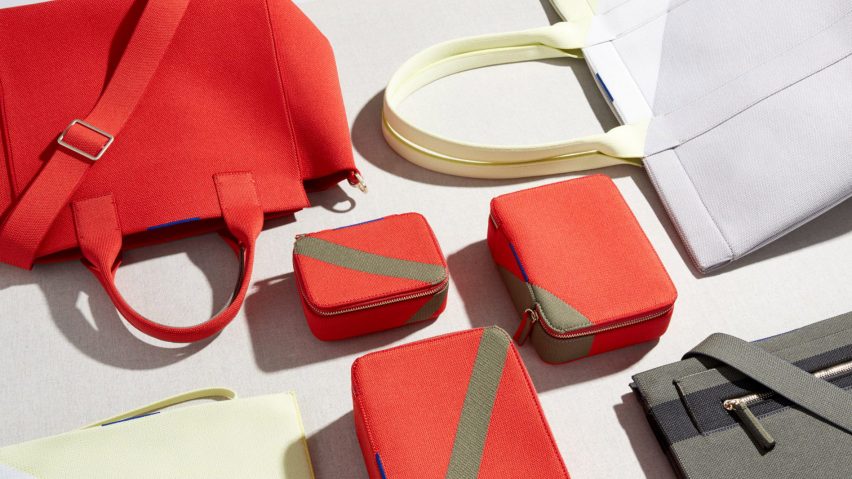US shoe company Rothy's has launched handbags that it claims are made from 100 per cent recycled materials.
The series is the first bag collection by Rothy's, which is known for creating knitted women's footwear made from recycled plastic water bottles.
The handbags use Rothy's usual threading and a new fibre made from post-consumer plastics the brand said are sourced "within 30 miles of coastlines and marine environments".
Company co-founder Roth Martin said that it is the first recycled plastic handbag collection of its kind to use ocean-bound plastics.
"We're the first in handbags," said Martin. "Other brands experiment with ocean-bound marine plastics. Very few have commercialised full collections at this scale."
To create the recycled plastic material, the plastics are collected from beaches and waterways, broken into chips, melted into pellets, stretched into fibres and then treated with air into yarn.
The thread is then combined with Rothy's recycled polyester (rPET) thread to ensure the handbags are durable.
The combination of materials means the bags are made "from 100 per cent recycled materials", aside from the metal zippers and hooks.
"From a materials standpoint, ocean-bound marine plastics are less stable than our signature rPET thread," Martin said. "These plastics are degraded by sun, salt and sand."
"By blending them with the rPET thread and using our knitting process, we create a durable, washable, soft and structured material that's a market-first for marine plastics."
Each bag is 3D-knitted at Rothy's factory in Dongguan, China. The brand said the knitting method creates less waste than traditional bag manufacturing because pockets, seams and edges can be formed in the process.
The collection includes a tote, pouch, handbag, crossbody and three different catchalls. The bags are machine-washable and come in a range of colours: red, yellow, dark grey, light grey, navy, cream and green.
Martin founded Rothy's in 2012 with Stephen Hawthornthwaite to create shoes with less waste than typical production methods. He described the handbag as a "natural progression" for the brand.
"Ocean-bound marine plastics are a natural progression for us," said Martin. "We were able to build on our expertise with knitting technology and other kinds of recycled plastics."
Martin added that using this type of plastic was also an important way for Rothy's to progress its environmental impact. "With eight million tons of plastic hitting oceans each year, creating demand for products made from marine plastic could make an impact," he said.
Rothy's bags join a number of products made from recycled plastic, as brands aim to become more environmentally conscious amid the climate change crisis. Others include Google's Nest Mini speaker, cladding tiles and a Plasticiet material that features inside an Antwerp store.
The Ocean Cleanup has also announced plans to turn the plastic it has collected from waterways into "beautiful, sustainable products".
However, many in the design community are torn about the environmental impact of using recycled plastic. In an interview with Dezeen, Jan Boelen called the rising use of recycled plastic "bullshit".
Dutch designer Richard Hutten echoed Boelen's remarks at the Dezeen Day conference last year, when he clashed with the CEO of the Ellen MacArthur Foundation over the role of plastic in the circular economy.

